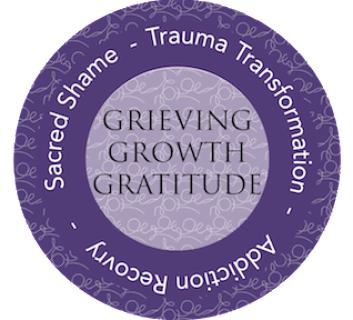Catholic priests, Baptist ministers, and church young adult pastors are being accused of sexual misconduct, a phrase which doesn’t give full power to the violation and betrayal of trust it creates. The tentacles of such an abuse reach deep into a person’s body and spirit, their roots spread for years to come and unfortunately, there is accountability that extends beyond the church building.
In 2009, I made a presentation at the SASH Convention in California on Co-Sex Addiction, while presenting our book, Relationships from Addiction to Authenticity: Understanding cosex addiction- A spiritual journey to wholeness and serenity. In the book, we explored addictiveness within relationships that included sex addiction, cosex addiction, relationship addiction, co-dependency, dysfunctional dynamics in relationships & within the larger systems that they exist. We also distinguished behaviors and qualities of healthful, vibrant, honest, relationships, including sexual relationships.
Many of us need help creating healthy relationships in our lives, in all areas including emotional, spiritual, financial, and sexual. We can learn emotional honesty, communication skills, boundaries, and how to honor what we want in our lives in terms of connection. When we have learned these skills and tools for ourselves, we can teach our children, and create healthy emotional atmospheres in our homes, classroom, churches and other institutions.
Those who have violated children and teens held in their care, or anyone else that they use their power or position to abuse, should be held accountable.
But the buck does not stop there.
Evidence suggests that our media and marketing culture sexualizes and objectifies children.
Evidence suggests that when chronic sexual abuse exists within a system, there is the perpetrator, the victim, and enablers.
Evidence also suggests that creating a healthful emotional environment in our homes, includes speaking about our feelings, teaching children to have boundaries, and communicating honestly about sexuality, among other issues in life, can assist in the prevention of addictive behaviors in general. Our willingness to address these issues invites uncomfortable, sometimes delicate conversations between children and the caring adults in their lives. When we talk, trust and feel our feelings in safe environments, we are less prone to find ourselves lured into harmful interactions with abusers.
As a society, we do not exist in a vacuum. We live in communities, neighborhoods, families. How are we missing this rampant sexual predation, especially when the onslaught of abuse we are uncovering has taken place by those who are entrusted with the spiritual guidance of our children and families?
We are parents, secretaries, mothers, sisters, neighbors, teachers, fathers, and religious clergywomen and men. Why aren’t our children and teens coming to us asking for help at the first signs of perpetration?
A young man in his late 20’s who attended one of the churches in the Houston area in which sexual abuse charges have been filed, confided in me he could often see and feel the weird ‘vibe’ between the teenage girls and their youth pastor.
“Our youth minister called the girls aside to pray with him, and I knew the guy was kinda creepy,” he said. “I even warned a friend of mine once.”
Abuse, sexual misconduct, and a misuse of power do not occur in isolation. As a society, it is time for accountability of those who commit such violation and for us to look at our part in enabling it.
Here are three actions we can take to assist in the prevention of sexual predation of our children and teenagers:
- The “no talk” rule ends here. As parents, we must talk to our children about their bodies, sexuality, and teach them to speak up if they ever feel uncomfortable or unsafe with another adult. When we are able to broach these sometimes-awkward conversations, we demystify the topics and create a safe, trustful bond for honesty and openness.
- As adult women and men, it is necessary that we seek our own healing, and sexual abuse recovery if we have been violated or abused in any way. We may fail to see the signs of a troubled child, teenager, or another friend who may have experienced sexual violation if we have buried our own abuse. Denial is a powerful tool to deal with trauma when we are not equipped to feel its impact fully. If we have not directly experienced such violence, then there are still signs for recognizing the experience of others. Go to a trauma center. Learn the facts of sexual perpetration and what to look for if you suspect someone you care about may be carrying this trauma.
- Notice the subtle and overt signs of sexualizing our children, and take a stand to both talk about it with your children and as a family, as well as share your concerns with teachers, ministers, or pastors in your family’s lives. Speak up.
Enough is Enough. After all, it takes a village, an awake, aware, and willing to act village.
Catholic priests, Baptist ministers, and church young adult pastors are being accused of sexual misconduct, a phrase which doesn’t give full power to the violation and betrayal of trust it creates. The tentacles of such an abuse reach deep into a person’s body and spirit, their roots spread for years to come and unfortunately, there is accountability that extends beyond the church building.





Sorry, comments are closed for this post.